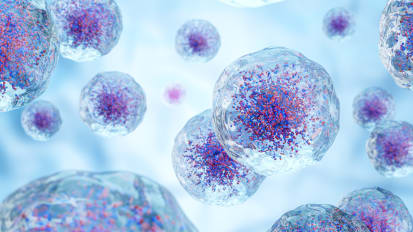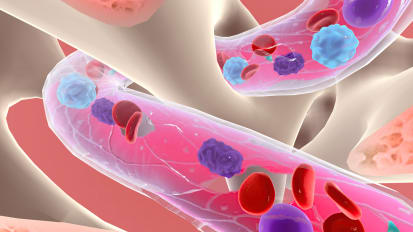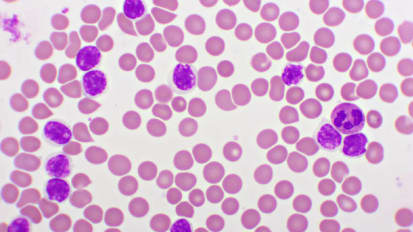Search Videos and More
 News
News
Bispecific Antibody Therapies for Lymphoma
Since 2015, Dana-Farber researchers have been participating in clinical trials that evaluate the use of bispecific antibodies for patients with non-Hodgkin lymphoma. Three bispecific antibody therapies have been FDA approved with more on the horizon. These are exciting new medicines that rally the immune system in a powerful way to fight blood cancers. But rolling out a new type of medicine is a project of its own. News
News
BCL2 Inhibitors: What’s the Latest Research?
BCL2 inhibitors are drugs that prompt cancer cells to die by altering the interactions among key proteins within the cells. They were clinically developed, in large part, by researchers at Dana-Farber and have been approved by the U.S. Food and Drug Administration (FDA) for the treatment of acute myeloid leukemia (AML) and chronic lymphocytic leukemia (CLL) in adults. News
News
Dana-Farber CEO Laurie Glimcher Has Always Been a Trail-Blazer and a Risk-Taker
Dr. Laurie Glimcher learned early on from her father, a prominent physician-researcher, that success in science was built on a basic principle: Big discoveries require big risks. News
News
Antibody-Drug Conjugates: A Cancer Therapy Revolution
Dana-Farber researchers explore how a novel therapy may benefit patients News
News
Exploring How CAR T-Cell Therapy May Help More Patients
CAR T-cell therapy burst onto the scene as a revolutionary treatment for cancer patients in 2015, when it was introduced in clinical trials primarily for patients with lymphoma and leukemia. Since then, it has transformed the course of disease, primarily for blood cancer patients, with many clinical trials now exploring the approach for solid tumor patients. Through this highly tailored form of immune effector cell (IEC) therapy, typically a patient's own immune cells — known as T cells — are genetically re-engineered to identify and kill cancer cells. News
News
Allogenic Hematopoietic Cell Transplant a Viable Option for all Patients with High-Risk MDS
Allogeneic Hematopoietic Cell Transplantation Improves Outcome in MDS across High-Risk genetic subgroups: Genetic analysis of the BMT CTN 1102 study News
News
Bispecific Antibodies for Multiple Myeloma: Six Things Your Patients Should Know
In 2022, the drug teclistamab became the first bispecific antibody to be approved by the U.S. Food and Drug Administration (FDA) for the treatment of multiple myeloma. News
News
Study Uncovers Role of Ultraviolet Radiation in Development of Rare Leukemia in the Skin
A change of scenery can restore one's outlook, but for some precancerous cells, a journey from the caves of the bone marrow to the sunny climes of the skin can trigger genetic changes that are a harbinger of cancer, according to a new study by researchers at Dana-Farber Cancer Institute, Brigham and Women's Hospital, and the Broad Institute of MIT and Harvard. News
News
New Clinical Tool for Clonal Hematopoiesis Identifies Patients at High Risk for Blood Cancer
A new clinical tool developed by a team of researchers led by the Dana-Farber Cancer Institute pinpoints which Clonal hematopoiesis patients are at highest risk for cancer progression. News
News
Study Unravels a Cause of Resistance to Novel Drug in Patients with Acute Leukemia
A new targeted drug has not only sparked remissions in patients with a common form of leukemia but also induced the cancer cells to reveal one of their schemes for resisting the drug, investigators at Dana-Farber Cancer Institute and other research centers report in a new pair of studies in the journal Nature. Video
Video
Smoldering Multiple Myeloma - A Unique New Approach
When Deidre was diagnosed with a precursor condition to multiple myeloma she enrolled in a brand-new clinical trial being conducted at Dana-Farber Cancer Institute. Deidre and her doctor, Dana-Farber's Irene Ghobrial, MD, explain more in this video. News
News
Dana-Farber Led Study Leads to FDA Approval for Next-Generation Drug in Relapsed Chronic Lymphocytic Leukemia
On Thursday, January 19, 2023, the FDA approved zanubrutinib, a next-generation BTK inhibitor for the treatment of patients with chronic lymphocytic leukemia (CLL) or small lymphocytic lymphoma (SLL).